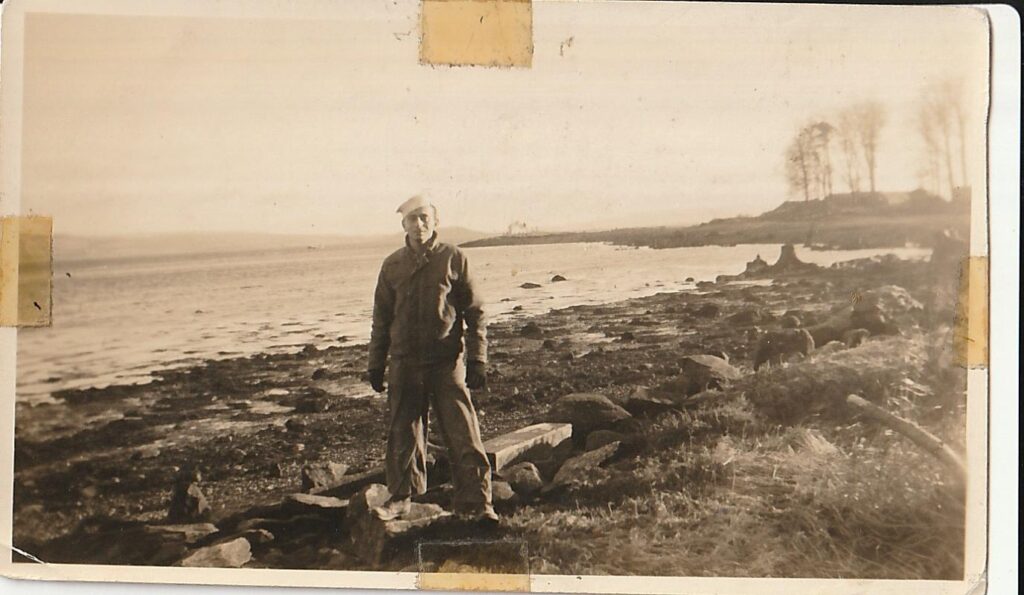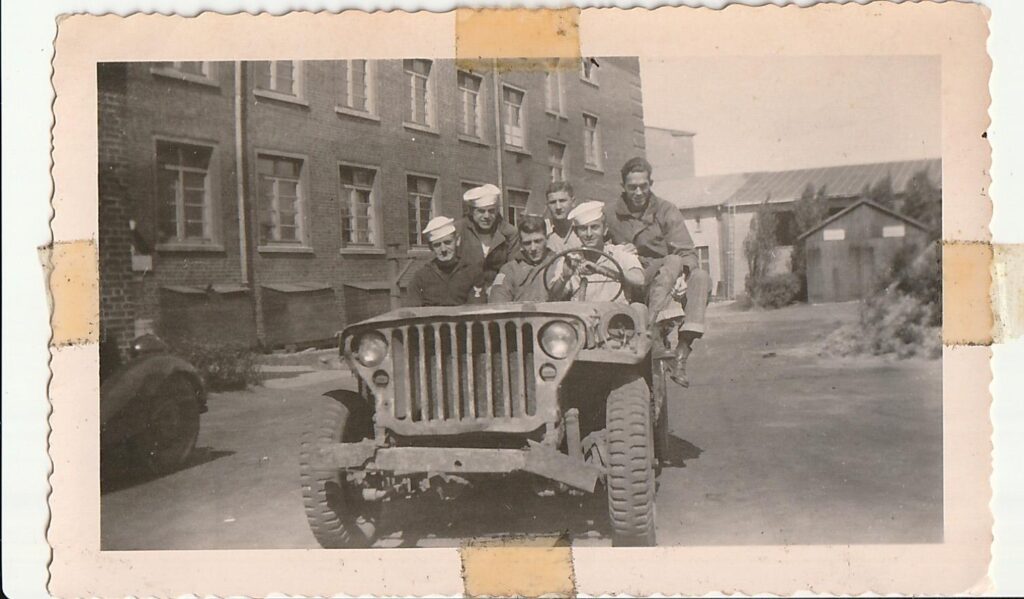
The following is a guest post by Elaina Finkelstein, a public affairs Specialist in the Library’s Office of Communication.
Today is June 6—a seemingly ordinary Tuesday for some, but for my family, a day spent remembering the harrowing service of my grandfather, Lewis Finkelstein, on the beaches of Normandy, France, in 1944.
Through an oral history preserved in the collection of the Library of Congress Veterans History Project (VHP), we are able to listen to his story in his own words and voice long after his passing. Even for those without such a personal connection to D-Day, my grandfathers’s oral history is an emotionally gripping account that represents the experiences of rank-and-file service members during the invasion.
My grandfather Lewis served in the U.S. Navy as a gunner on a Landing Craft Vehicle Personnel (LCVP) on D-Day. During the invasion, his LCVP made one successful landing on Omaha Beach, but on the way back, it hit a mine. He sustained an injury to his leg, lost consciousness in the water and suffered severe burns. After recovering from his wounds in England, he returned to duty and served for the rest of the war, including as part of the Navy contingent that captured the German naval yards in Bremen and Bremerhaven. Once the war ended, he spent over a year doing occupation duty in Germany—all before he turned 20.
Years before I began working at the Library, my sister Allison recorded oral histories of both of our grandfathers (Finkelstein and George Hoffman) for donation to VHP. Recently, when I asked her why she chose to participate, she explained: “Submitting to the Veterans History Project is so significant because we can’t just focus on the stories of the famous generals and admirals. We have to also share the stories of the privates, of the lower-level sailors, airmen or others whose contributions were just as important but will never be known unless someone in their community takes the time to record their story.”
The importance of the Veterans History Project lies in its mission to collect and preserve the experiences of the men and women who served our country. Established by Congress in 2000, VHP seeks to emulate the effect of older family members recalling their experiences to the younger members, passing along stories from generation to generation. VHP offers participants, from family members to citizen historians, the opportunity to play an instrumental role in capturing the firsthand narratives of U.S. military veterans—not just those whose names will be remembered in legend but also unsung heroes.
The veterans in our lives and communities will not be with us forever, but their unique service experiences can be recorded and archived so that their stories can go on to inspire future generations. I hope that this blog post inspires you to go out into your community and listen to your families’ stories and participate in the Veterans History Project. Find out how at www.loc.gov/vets.


